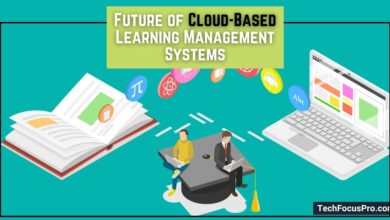How ERP Software Can Transform Your Supply Chain Management

In the ever-evolving business world, efficient supply chain management stands as a cornerstone for success. Enterprises are constantly on the lookout for innovative solutions to streamline processes, enhance productivity, and reduce costs. Enterprise Resource Planning, or ERP software, has emerged as a game-changer in this domain.
By integrating various facets of operations, an ERP system can significantly improve the performance of supply chains. Below, we delve into the transformative effects that ERP solutions can have on supply chain management.
Exploring the Impact of ERP on Supply Chain Efficiency
The ability to adapt quickly to market changes relies heavily on supply chain efficiency, and ERP systems play a key role by offering a unified view of procurement, production, sales, and distribution.
This integration allows businesses to respond faster to demand shifts and supply disruptions while reducing costs. ERP enhances logistics and warehousing by providing real-time data and analytics, enabling route optimization, shorter lead times, and improved inventory turnover.
A core feature is advanced forecasting, where historical data and trends are analyzed to predict demand, maintain stock balance, and prevent shortages or overproduction. ERP also strengthens interdepartmental communication, improving coordination and minimizing errors across supply chain operations.
Also Explore: Benefits and Challenges of Care Coordination Software
Streamlining Inventory Management with ERP Integration
Inventory management poses challenges when handled manually, often causing inefficiencies and missed opportunities. ERP systems address this by unifying inventory data across multiple locations, offering real-time stock visibility to support just-in-time strategies.
This reduces holding costs, minimizes obsolete stock, and prevents stockouts through automated reordering at predefined levels.
Businesses also gain improved forecasting through advanced analytics, enabling better preparation for demand peaks, supplier lead times, and purchasing decisions.
By streamlining these processes, ERP-driven inventory management not only lowers costs but also strengthens supply chain resilience, helping organizations respond more effectively to market shifts while maintaining customer satisfaction through consistent product availability.
Enhancing Transparency and Collaboration in Supply Chains Through ERP
ERP systems enhance supply chain visibility by giving stakeholders real-time access to shared data, creating a transparent and collaborative environment.
With this visibility, companies can quickly identify bottlenecks, address problems efficiently, and improve accountability across all levels. Such transparency also enables partners, suppliers, and customers to align their activities with actual conditions, strengthening relationships and streamlining operations.
ERP-enabled communication tools support collaboration by connecting dispersed teams and ensuring consistency in workflows. Beyond internal operations, ERP systems integrate with partners’ platforms, creating an interconnected network of businesses.
This integration fosters agility and responsiveness, building stronger supply chain ecosystems capable of handling the challenges of modern commerce.
ERP-Driven Analytics: Unlocking Data Insights for Supply Chain Optimization

Big data and analytics are transforming supply chain management, with ERP software playing a key role in delivering actionable insights for optimization. By leveraging data analytics, ERP systems help managers monitor critical KPIs such as order accuracy, delivery performance, and inventory turnover, ensuring greater operational visibility.
These insights support more precise decision-making, enabling businesses to refine transportation strategies, reduce waste, and improve resource management.
ERP platforms also allow organizations to simulate various supply chain scenarios, using predictive analytics to anticipate changes in demand or supplier performance. This proactive approach strengthens strategic planning and helps businesses adapt to evolving market conditions with greater agility.
The Role of ERP in Facilitating Compliance and Risk Management in Supply Chains
ERP systems are essential for managing regulatory compliance and risk in supply chains. They automate and monitor compliance processes, reducing the likelihood of fines and reputational damage. In risk management, ERP software helps identify potential disruptions, track their impact, and support rapid mitigation, which is crucial for sustainability.
For international operations, ERP consolidates trade processes and documentation, ensuring adherence to diverse global regulations with fewer errors. ERP also improves traceability throughout the supply chain, aiding in quality control, product recalls, and consumer trust. In industries like food, beverage, and pharmaceuticals, this traceability can prevent minor incidents from escalating into major crises.
Overall, enterprise resource planning systems offer a multifaceted solution for overcoming the challenges of modern supply chain management. They enable businesses to operate with greater efficiency, transparency, and agility.
As the complexity of supply chains continues to increase, leveraging the benefits of ERP systems will be crucial for businesses seeking to innovate and succeed in a competitive landscape.






